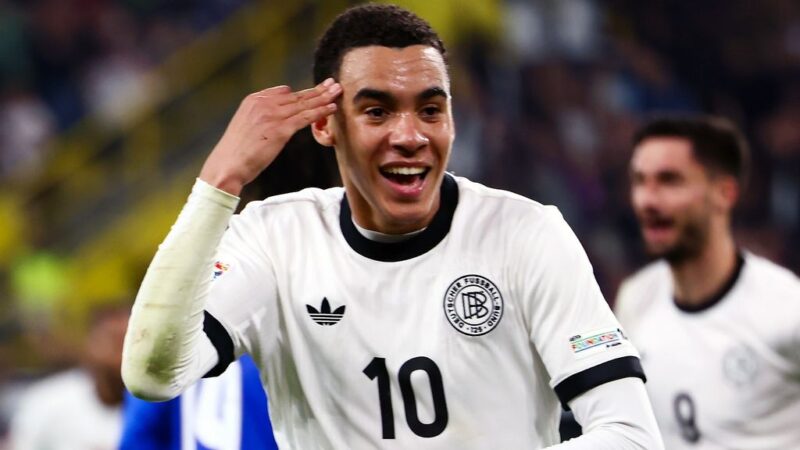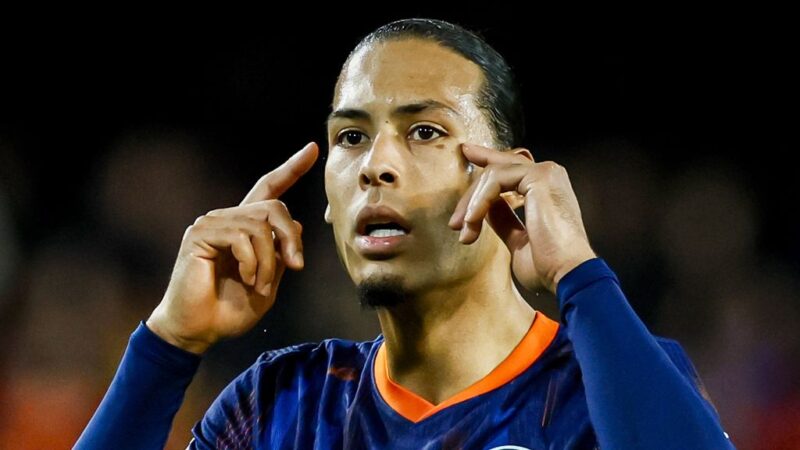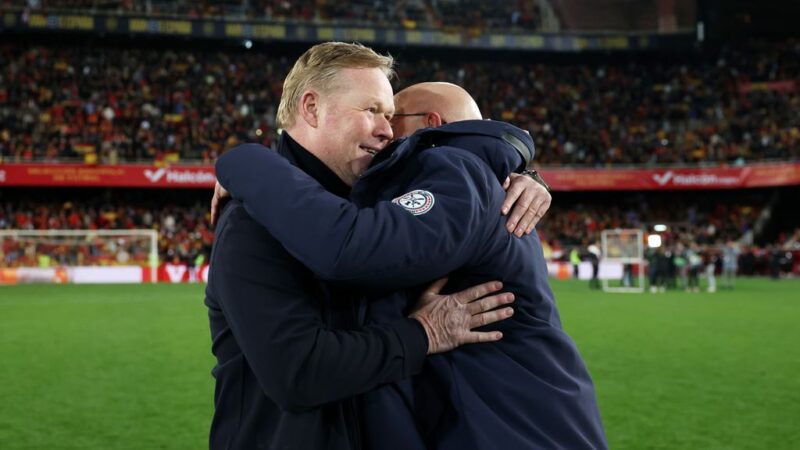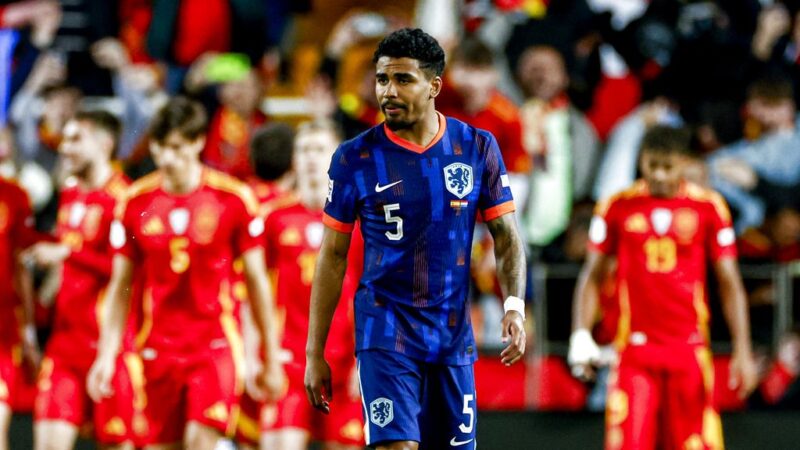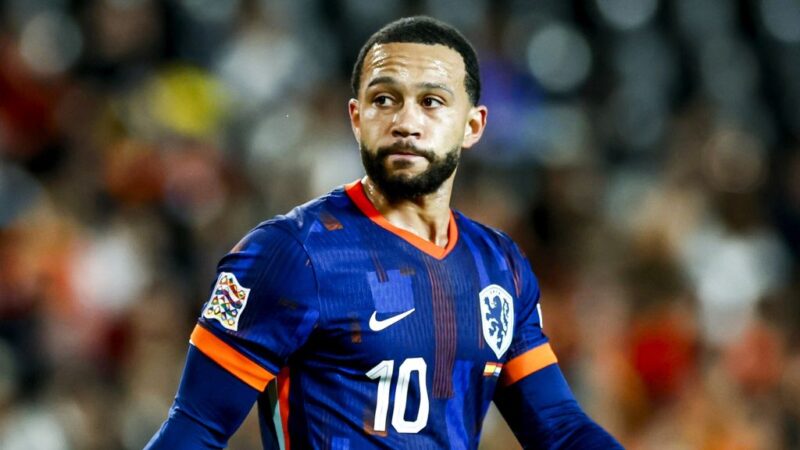From ‘the tractor to Madrid,’ to the first division: Groningen must start all over again

NOS Football–
“And we’re going on the tractor to Madrid!” The anthem of FC Groningen’s supporters has been heard invariably for years when the team is once again allowed to sniff out a European adventure. But after a disaster year of the highest order, Groningen descends to the first division after 23 years.
Relegation means trips to Dordrecht, Oss and Helmond, among others, instead of on the tractor to Madrid.
How did things go so wrong for green and white? And how to proceed now? Club icons Ron Jans, Hans Nijland and Jan van Dijk talk about the past and present and the future of the FC.
Solid middle man
When Groningen promoted to the premier league in 2000, no one could have imagined that the club would quickly develop into a solid midfielder. Especially from the moment Ron Jans took over as head coach in 2002, things went crescendo for the club. The Oosterpark was exchanged for the Euroborg in 2006 and in that stadium the talent of star players such as Luis Suárez and Dusan Tadic blossomed. In addition to sporting successes, it also earned FC Groningen millions in transfer fees.
“There was peace in the club at that time, there were clear and short lines of communication,” Ron Jans says. “I was a trainer there for eight years and in that period Hans Nijland was always the director, Henk Veldmate the head of scouting, Theo Huizinga the team manager and I could name more names like that. You have to be one at the top and if that is the case, you often see that reflected in the performance on the pitch.”
Even after Jans’ departure, Groningen continues to perform well. The highlight is winning the KNVB Cup in 2015, the first real prize in the club’s history. Performance in the league is stable and almost every season the “Pride of the North” qualifies for the playoffs for European soccer. And not only athletically, therefore, there is continuity in the leadership as well, with general manager Hans Nijland as the showpiece.
“What is happening this season is, in my opinion, completely unnecessary. FC Groningen has a budget of well over 20 million, then you should play among the best eight clubs. If you end up eleventh or twelfth, that can happen. But this, flying out without a chance, is very frustrating and painful. This does something to you,” says Nijland.
Decay visible
Decay is already visible in the final stages of last season. The last seven games under Danny Buijs’ leadership are all lost and the club finishes twelfth. With Frank Wormuth as the new coach, Groningen hopes to take a new direction.
It turns out to be a mismatch. Wormuth does not feel accepted for a moment, is at odds with staff, players and management and has to leave after barely five months. After that, under the leadership of Dennis van der Ree, things only got worse.
Groningen hardly wins and after the winter transfer period, technical director Mark-Jan Fledderus also has to leave the field after continuous criticism of his purchase and sales policy.
Supporters
To make matters worse, things also get out of hand in the stadium, when supporters enter the field against SC Cambuur and a blow is even dealt by a spectator to left back Jetro Willems against sc Heerenveen.
The low point is the suspended match against NEC because an assistant referee is hit by a full cup thrown from the stands by a supporter. It completes the disaster year for Groningen.
According to Jan van Dijk, the man who played more than 500 games for the club and owes his nickname “mister FC Groningen” to it, the decline started years ago. “Too many people with Groningen DNA have left. That is the core of the problem. You need people who know how Groningers think, who can get the whole city and province on board. Those people I missed and that bothers me.”
Nijland: “An incredible amount has simply gone wrong. My successors recognize that themselves. It didn’t go ‘together’, the ‘we-feeling’ was missing. Groningen has always been strong as a people and family club. Everyone is subordinate to the club’s interests. Director Wouter Gudde puts his finger on the sore spot when he says he missed that.”
Quality on the pitch
“It just hurts, it’s a dramatic season,” Jans added. “We played against them at the beginning of February. (1-1, ed.) We struggled heartily and I got the feeling after that game that there was new energy. But that never followed through. It also became difficult because it was a very young team and there was too little experience and leadership on the field. In the end, quality on the field is the most important thing.”
In addition, according to Nijland, things were not handled properly after Wormuth’s departure. Van der Ree fell victim to that, Nijland believes. “Who already started with such a huge backlog, because after the dismissal of Wormuth, Groningen first tried to get three or four other trainers. Van der Ree was not the first candidate and he knows that himself, but so does the rest of the soccer world. I understand that he stepped in, but you can wonder if that was wise so at the beginning of his coaching career.”
“For me, especially Fledderus has fallen through the ice,” Van Dijk assessed. “Gudde is a good director and I attribute important qualities to him, but if you look at the soccer technical policy, it all didn’t fall right. Not with Wormuth and not with Van der Ree either. In my opinion, they had the confidence for too long that things would still work out.”
‘Accept and see the benefits’
FC Groningen will have to start building again. It has with FC Twente (2019) and this season PEC Zwolle and Heracles Almelo recent examples of clubs returning to the premier league after one season. “But I know more stories of clubs that have not succeeded,” warns Nijland. “ADO Den Haag, Roda JC, NAC Breda … Those are potentially premier league clubs but you see how hard they are struggling. It’s not a given that you just come back.”
Jans: “Not long before I started as a trainer at Groningen in 2002, the club also got relegated. You have to accept it and try to see the benefits. You have to cut back and say goodbye to players. That gives youth players a chance to break through.”
